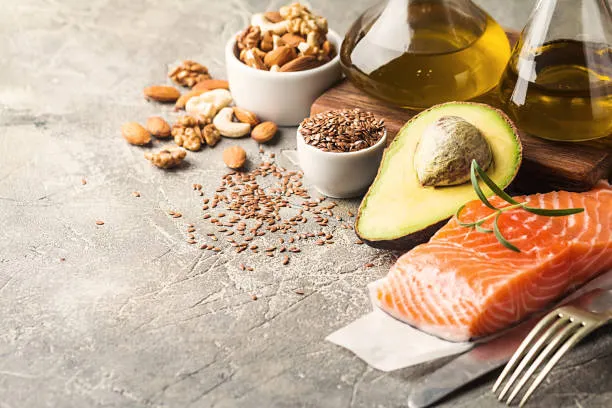Nutrition is a topic that affects everyone, yet misinformation spreads rapidly. Many Americans still follow outdated dietary advice that science has already debunked. These misconceptions can lead to poor eating habits, unnecessary restrictions, and even health risks. Let’s separate fact from fiction by addressing some of the most common nutrition myths in the U.S.
1. Myth: Carbs Are Bad for You
Truth: Carbs Are Essential for Energy
- Carbohydrates are the body’s primary energy source.
- Whole carbs (like fruits, vegetables, and whole grains) are nutrient-rich and beneficial.
- Processed carbs (like white bread and sugary snacks) contribute to weight gain and health issues.
- The key is choosing complex, fiber-rich carbohydrates.
Keywords: carbohydrates, whole grains, energy source, complex carbs, weight gain

2. Myth: Eating Fat Makes You Fat
Truth: Healthy Fats Are Essential for Health
- The body needs fats for hormone production, brain function, and energy storage.
- Healthy fats (like avocados, nuts, olive oil, and fatty fish) support heart health.
- Trans fats and excessive saturated fats (found in fried foods and processed snacks) are the real culprits of weight gain and heart disease.
- Moderation and the right type of fat are key.
Keywords: healthy fats, trans fats, heart health, avocados, olive oil

3. Myth: You Need to Drink 8 Glasses of Water Daily
Truth: Hydration Needs Vary
- The “8 glasses a day” rule is a generalization.
- Hydration needs depend on body size, activity level, climate, and diet.
- Water from fruits, vegetables, tea, and soups also contributes to hydration.
- A good rule of thumb: Drink when you feel thirsty and monitor urine color (light yellow is ideal).
Keywords: hydration, water intake, daily water needs, dehydration, thirst cues
4. Myth: High-Protein Diets Damage Kidneys
Truth: Protein Is Safe for Most People
- High-protein diets are only a concern for individuals with pre-existing kidney disease.
- Protein supports muscle growth, immune function, and tissue repair.
- Overconsumption of processed proteins (like deli meats) can have health risks, but natural sources (like chicken, fish, eggs, and beans) are beneficial.
Keywords: high-protein diet, kidney health, muscle growth, protein sources

5. Myth: Microwaving Food Destroys Nutrients
Truth: Microwaving Is One of the Best Cooking Methods
- Cooking methods like boiling and frying can deplete nutrients more than microwaving.
- Microwaving food with minimal water preserves vitamins and minerals.
- Short cooking times and lower temperatures help retain nutrients.
Keywords: microwaving food, cooking methods, nutrient retention, food safety
6. Myth: Egg Yolks Are Bad for Your Heart
Truth: Egg Yolks Are Nutrient-Packed
- Egg yolks contain essential vitamins like B12, D, and choline.
- Research shows that moderate egg consumption does not significantly raise cholesterol levels.
- Eggs provide healthy fats and high-quality protein.
- The real heart health risks come from processed foods, not natural cholesterol sources like eggs.
Keywords: egg yolks, cholesterol, heart health, healthy fats, protein

7. Myth: Detox Diets and Cleanses Remove Toxins
Truth: Your Body Naturally Detoxifies Itself
- The liver and kidneys naturally filter and remove toxins.
- Detox teas, juice cleanses, and extreme fasting can do more harm than good.
- A balanced diet rich in fiber, antioxidants, and water supports natural detoxification.
Keywords: detox diets, liver function, natural detox, juice cleanses, body cleanse
8. Myth: Fresh Produce Is Healthier Than Frozen
Truth: Frozen Fruits and Vegetables Can Be Just as Nutritious
- Frozen produce is often picked at peak ripeness and flash-frozen to preserve nutrients.
- Fresh produce loses nutrients over time, especially if transported long distances.
- Both fresh and frozen options have their benefits—choose based on convenience and budget.
Keywords: fresh vs frozen produce, nutrient preservation, healthy eating

9. Myth: Skipping Meals Helps With Weight Loss
Truth: Skipping Meals Can Slow Your Metabolism
- Skipping meals can lead to overeating later and disrupt blood sugar levels.
- It can slow metabolism and decrease energy levels.
- Eating balanced meals and snacks throughout the day promotes steady energy and prevents cravings.
Keywords: meal skipping, metabolism, weight loss, blood sugar, healthy eating habits
10. Myth: Natural Sugars Are Always Healthier Than Processed Sugar
Truth: Sugar Is Sugar—Moderation Is Key
- Honey, agave, and coconut sugar contain small amounts of nutrients, but they still affect blood sugar.
- Excess sugar consumption, regardless of type, can lead to health issues like diabetes and obesity.
- The focus should be on reducing overall sugar intake rather than swapping one type for another.
Keywords: natural sugar, processed sugar, blood sugar levels, healthy diet
Conclusion
Misinformation about nutrition can lead to unnecessary food fears and poor health decisions. By understanding the truth behind these common myths, you can make smarter, science-backed dietary choices. The key to good health isn’t about strict restrictions but balance, variety, and moderation in your diet.
10+ Best USA Fitness Influencers You MUST Follow for Daily Motivation






